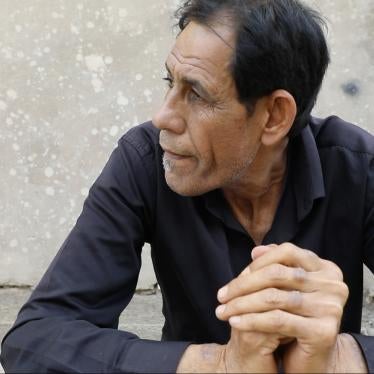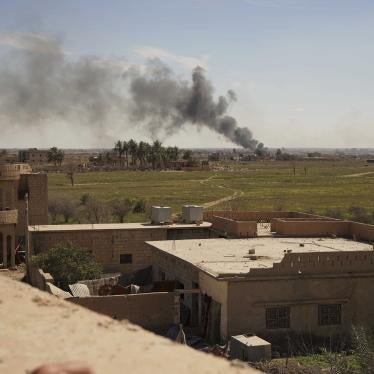Over the last five years, the Obama administration struggled to develop and carry out a program to prevent violent extremism through community engagement and developing counter-narratives to extremist messages. The Countering Violent Extremism (CVE) program, which began in August 2011, provides resources to communities to build and sustain local prevention efforts in the hope that this would address the root causes of violent extremism.
Yet even critics of Trump’s CVE proposals such as Stevan Weine may underestimate the downside of CVE – and only appreciating those downsides allows one to fully understand the likely effect of Trump’s maneuver. While the objective behind CVE is laudable, in practice, many of the efforts have been problematic and their impact limited or even negative in some cases. One of the key issues has been the tension felt by many communities that CVE initiatives were not there to support them but rather to spy on them. Instead of improving this program, Donald Trump apparently wants to take its worst aspects and magnify them. He wants to change the CVE program – in theory designed to counter all violent ideologies – into a program that focuses solely on Islamist extremism. He would reportedly rebrand the program and call it “Countering Islamic Extremism” or “Countering Radical Islamic Extremism.”
This would be a terrible idea on so many levels. It will undermine any possibility of real engagement with Muslim communities as it would further conflate violent extremism with Islam and deepen the fears of Muslim communities in the US – many of which are still reeling from Trump’s new order restricting immigration from seven Muslim-majority countries. Many observers of CVE programs that have taken place in recent years have noted that such programs had fueled suspicion of Muslim Americans. A December 2015 document by the ACLU, Article 19, and the Brennan Center notes that “CVE initiatives in the United States and Europe focus overwhelmingly on Muslim communities, with the discriminatory impact of stigmatizing them as inherently suspicious and in need of special monitoring.” In Boston, Minneapolis, and Los Angeles – where some of the pilot CVE programs took place – a range of grassroots Muslim groups have expressed serious reservations about these initiatives. Trump’s proposed shift would only accentuate this stigma and erode trust between law enforcement and concerned communities.
Trump’s proposed changes would exacerbate another problematic aspect of CVE programs, namely the lack of clarity in terms of what such programs are meant to counter and how they achieve their objectives. Existing CVE programs have struggled to define what constitutes “violent extremism,” and several studies have shown that there is no predictable process by which individuals become violent extremists. Accordingly, categories that are often adopted as indicators of potential risk are so broad as to be almost meaningless or, alternatively, affect large numbers of people – usually from certain ethnic or religious communities. Trump would move the programs into even more elusive ground by focusing them on ill-defined and vague concepts such as Islamic Extremism or even Radical Islamic Extremism. How would these programs determine what are extreme interpretations of Islam and is it the role of US government programs to promote certain interpretations of religion?
Equally troubling, Trump’s proposal would send a message that his administration seems indifferent to the risk posed by other forms of violent extremism despite law enforcement data indicating that they are responsible for a high number of deadly armed attacks in the US, and that such a risk has been on the rise. If Trump believes in the role of CVE programs in countering violence, then it is difficult to understand why he would only focus on Islamist movements and ignore the danger posed by other violent groups. In June 2015, violent ideology played a key role in the motives of the avowed white supremacist who went on a shooting rampage at an African-American church in Charleston, South Carolina. In a 2015 survey of 382 US law enforcement agencies by the Triangle Center on Terrorism and Homeland Security, 74 percent reported anti-government extremism as one of the top three terrorist threats in their jurisdiction; while only 39 percent listed extremism connected with Al-Qaeda or like-minded organizations.
A 2012 study by Dr. Arie Perliger, a professor at the US Military Academy’s Combating Terrorism Center, found that since 2007, there has been a dramatic rise in the number of attacks and violent plots originating from individuals and groups who self-identify with the far-right of US politics. He documented an average of 337 attacks a year in the decade after 9/11, causing a total of 254 fatalities. Dr. Perliger found that the volume of violence was correlated with the “the sense of empowerment that emerges when the political system is perceived to be increasingly permissive to far right ideas.”
Other databases using different definitions of political violence, such as a database on Profiles of Perpetrators of Terrorism in the United States maintained by the Start Center at the University of Maryland and the database of the International Security Program at the New America Foundation also report high number of fatalities from homegrown extremists with no ties to extremist views of Islam – often higher than the ones such studies categorize as being in significant part inspired by extremist views of Islam. And yet, a decision by Trump to change the CVE program would mean that grants that currently go to groups that rehabilitate former neo-Nazis and other domestic extremists will likely be cut.
President Trump could have asked for an evaluation of existing CVE programs before deciding how to proceed. But the news reports suggest that has decided to double down on efforts to portray violent extremism as merely a problem with Muslims. That is a short-sighted, dangerous decision that will affect Muslims, undermine law enforcement objectives by discouraging cooperation with affected communities, and minimize the danger that other forms of violent extremism pose.









